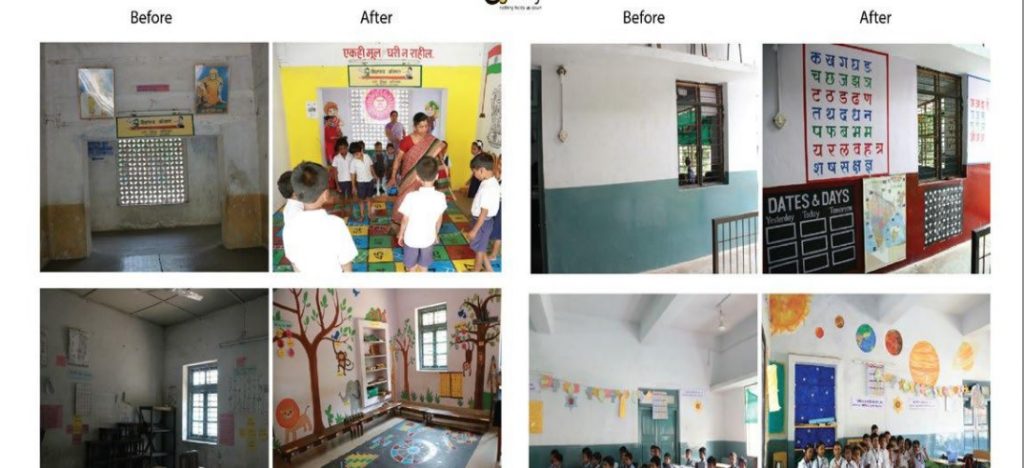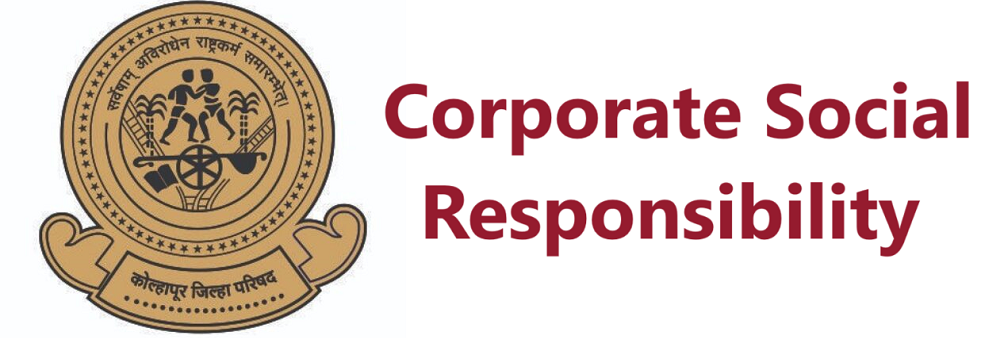The School Transformation Project

Zero gravity is a youth led nonprofit organization; operating under Dr. Shrikant Jichkar foundation that brings young change makers together who uses their genius on project of social good based on innovation and ideation. It works with government school, children at risks in shelters and with village communities at large.
The School Transformation Project
The project is for the redesigning the schooling experience of children in government school through holistic infrastructural makeovers using UNICEF’s concept of Building as a learning Aid (BALA). This project works with students, teachers and the community to train as well as encourage them to explore, apply, and accept innovative ways of teaching and learning.
Vision:
All schools will be interactive, engaging and learning spaces for all children.
Concept:
We try to achieve this vision by mainly catering 3 domains which ensure safety of the children and uplift the quality of education received by them.
We are mainly focusing of three major sectors
a) Transforming classrooms through the concept of BaLA
b) Capacity building for E-Learning.
c) Ensuring child safety through construction of Compound Wall.
a. Transforming classrooms through the concept of BaLA
The fact that physical space can be a resource in the teaching-learning process has never been explored seriously. Buildings are also the most expensive physical asset of a school. By innovatively treating the school spaces (e.g. classroom, circulation spaces, outdoors, natural environment etc.) and their constituent built elements (like the floor, wall, ceiling, door, windows, furniture, open ground) a range of learning situations and materials can be integrated such that they can actively be used as a learning resource. This resource can complement the teaching process and supplement textbook information, much beyond providing wall space for posters and decoration. Research undertaken before the initiation of the project revealed that though the government schools provided basic amenities, t heir conditions were not up to the mark. Also, the school environment did little to provide the students with willingness, motivation and interest in learning. Therefore, this project is an endeavor to make the school buildings and other facilities a unique learning platform for students by creating curriculum based and relatable imagery on them at a low cost. BaLA has the potential to influence and improve many lives. It has already been implemented in 140 schools of S.S.A, with support from UNICEF. The results of this effort have been immense and in the form of increased attendance, increased time spent on school campus and improved level of minimum learning. And, similar such results are expected to be achieved through further endeavors. Thus, this project is an impetus for change, a change which will make both, learning as well as teaching, fun and fruitful. Using BaLA, spaces can be created as setting for the various goals for learning: to know, to do, to live together and to be for children, it can help in developing:
Language and Communication skill
Numeracy skills
Abstract notions through concrete examples
Power of observation
Implementation: Developing a Pilot Project for BaLA
It involves a few important activities-
a) Architecture will decide feasible design which can be implemented in existing infrastructure. Also they will figure out which new designs can be added in infrastructure under BaLA.
b) Volunteers’ involvement is important part of this phase. Work can be divided into two parts. In first part, activities which can be done easily and need no skilled labor will be done by Volunteers. E.g. Numbering on stairs. In second part, labors will be hired to do needful work which requires skilled people as per architectures requirement. E.g. Painters
c) Job responsibility allotment will define specific responsibility given to the volunteers. Different departments like co-ordination department, Paint department will take care of their individual responsibility assigned to them. After implementation of BaLA, we can study its effect amongst students and teachers in school. In detail analysis, we can find Pros and Cons in our methodology. Student feedback plays very important role in developing BaLA. It is because whole concept of BaLA is to make study interesting for students
Benefits:
1. Creating child-friendly learning environment.
2. Learning by doing and experiencing.
3. Involving multiple senses in the learning process.
4. Allowing different children to learn at a different pace.
5. Learning through peer group activities.
6. Developing inclusive settings for all children.
7. Allowing children to learn all the time in the school environment
Impact:
BaLA interventions in the Model schools brought a visible change. It has a very high visibility in the eyes of the community, school teachers, and the children
There has been increase in enrolment, attendance and retention of children in the school.
The participation and the interaction of the parents with the teachers has drastically increased.
The students now spend a lot of time using the school space to play and use the teaching aids.
Children now come before school hours and go back much after school hours.
Learning in school is now more interesting, joyful for children and teachers.
There is higher ownership of the school by the teachers, children and the community.
Local newspapers and national e-newspaper “The Better India” took notice of this initiative and featured this story which has led to awareness among many other government schools who have approached us to implement this project.
We are starting with two more schools in Jalgaon and Pune under this project.
We have got offers from 28 schools across Vidarbha district to take up this project.
![]()

